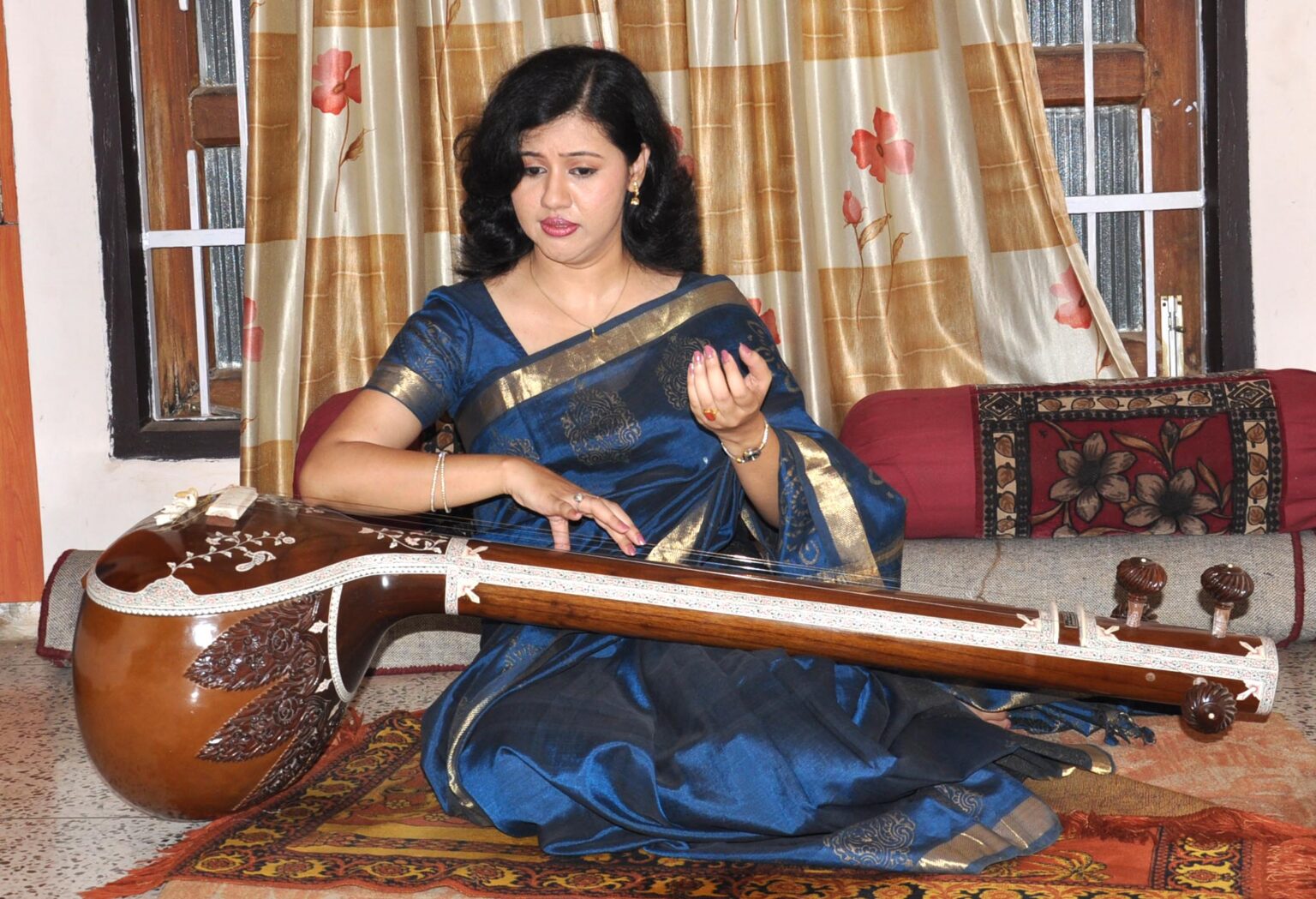Odissi music is scaling highs thanks to the efforts of young musician Nazia Alam, whose work and life reflect the state’s great secular heritage.
When Odisha’s late legendary singer Sikandar Alam and his vocalist-wife Naima Alam decided to name their daughter ‘Nazia’, they had a wish. That the baby would grow up to be a singing sensation like the then celebrated Pakistani singer Nazia Hassan.
Years later, their teenaged daughter was performing a duet with legendary Manna Dey during a stage show in Bhubaneswar following which the maestro told her, “It was quite an occasion to know you and then sing together with you. You are destined to go very far in the field of music. You are very dedicated in your pursuit of music. Please keep it up.”
True to the prayer of her parents and the prophecy of Manna Dey, Nazia Alam, in her early 40s, has already carved a niche for herself in the world of music with impressive achievements.
A multi-faceted talent
She was the first to claim the coveted Ustad Bismillah Khan Yuva Prativa Puraskar – India’s highest honour for young artists – for Odissi music in 2009. She was just 16 when HMV released her debut album. Three years later, she became a finalist at the immensely popular Zee Sa-Re-Ga-Ma reality show.
Equally adept in the rendition of classical, ghazal, light and film genres of music, she has already recorded more than 500 songs in five languages – Odia, Sanskrit, Bengali, Urdu and Hindi – besides performing in above 2000 stage shows in India and abroad. Manna Dey apart, she has also performed duets with Vani Jayaram.
Nazia is best known for her soulful recital of the 12th-century saint-poet Jayadev’s Gita Govinda. With her as the lead singer, HMV in 2008 brought out Sampoorna Geeta Govinda, an album that was released at a special ceremony in New Delhi by Sarod maestro Ustad Amjad Ali Khan. It was the first-ever presentation of the complete and unabridged version of the astapadis of Jayadev that has been in huge demand by the artists and connoisseurs so far.
“Recital of the Gita Govinda has been my most joyful and rewarding experience as a singer so far. I learnt Sanskrit to study its text and for a perfect rendition of the diction. I was so overwhelmed by the classic that I did my doctorate (PhD) on it,” she shared.
Odia and Odisha
Why did a singer of her calibre confine herself to Odisha, which is not a big music market? “I have a commitment towards my state and to Odissi music. Many years ago, when I went to Mumbai as the SaReGaMa finalist representing my state, I was required to introduce myself. It was a very embarrassing experience for me to discover that most of my counterparts did not know Odisha. I had to explain Odisha as the land of Puri Jagannath. I had decided then that I would make Odisha known through my music in future,” she says.
Nazia adds: “The other factor of my commitment has been the Ustad Bismillah Khan Yuva Prativa Puraskar. Despite having all elements of classicism and a tradition of at least 2000 years, Odissi music is yet to get the classical status that has been a long-standing demand from the people and the government of Odisha. As an Odissi artist from Odisha, I remained rooted to Odisha to serve Odissi.”
Her peerless appeal as a singer apart, what has made Nazia much admired among the Odia people across the globe is her incredible devotion to Lord Jagannath, exactly as her late father Sikandar Alam who was fondly referred to as the “Salabega of modern Odisha”.
Salabega was a poet who lived during the first half of the 17th century. A Muslim by birth, he is known as one of the greatest devotees of Lord Jagannath. Sikandar, who was the President of Odisha Sangeet Natak Akademi, not only loved singing songs for Jagannath but also used to say ‘Jai Jagannath’ during all his stage presentations.
Coincidentally, Nazia’s debut album by HMV was Jagannath Janana (devotional songs) while her most popular album has been Sampoorna Geeta Govinda, the songs that have been an integral part of the daily services for Jagannath at the temple in Puri.


1 Comment
I heard her in some occasions I found her brilliant